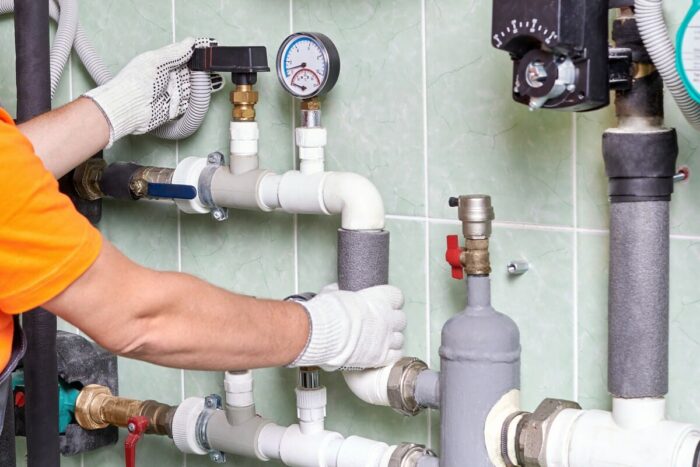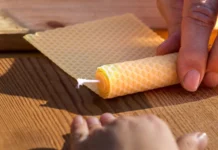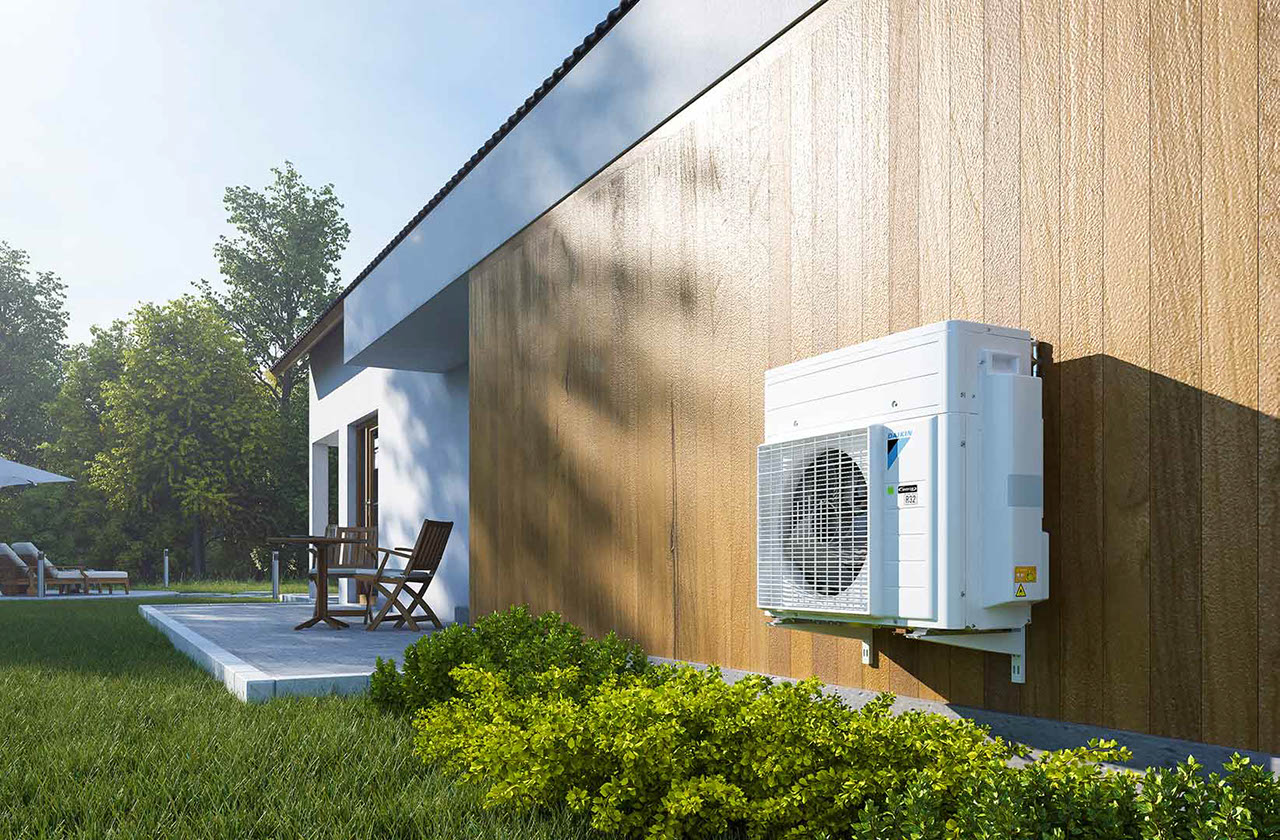
Are you having trouble with your heat pump constantly switching to auxiliary heat in the cold season? You’re not alone, and we want to help.
We know how confusing and frustrating it can be when your heat pump keeps switching – that’s why we’ve compiled five key reasons why your heat pump keeps going to auxiliary heat mode so you can better understand what might be causing it!
Whether you’re just looking for troubleshooting tips or ready to have a full system check-up, we’ve got the resources and advice you need. So don’t let a failing heating system ruin your winter; read on to learn more about why this could be happening in your home.
If you are having issues with your heat pump, contact the HVAC professionals at Anderson Air to get it fixed and running properly.
What is Auxiliary Heat in a Heat Pump?
Before we delve into reasons why your heat pump keeps going to auxiliary heat, we should first address what auxiliary heat is in a heat pump system.
Auxiliary heat, also known as emergency or backup heat, is a supplemental heating source used by a heat pump system when temperatures fall below a certain set point. Auxiliary heat is usually required in colder climates, where the outdoor air temperature is too cold for an air-source heat pump to perform efficiently.
Rising above the set point triggers auxiliary heat to be activated, reversing the cycle and helping maintain the desired indoor temperature while conserving energy. For increased efficiency, it’s better to avoid activating auxiliary heat.
This can be done by properly sizing the system and selecting high-quality equipment that will ensure efficient operation in colder conditions.
But why does my heat pump keep going to auxiliary heat? Read below for some common reasons.
1. The thermostat is set too high
Keeping the thermostat too high can cause your heat pump to switch to its auxiliary heating method. When your thermostat is too high, your system may divert to a less efficient method of heating your home, resulting in an increase in cost and wear on the unit.
To keep these events to a minimum, ensure you are setting the thermostat to a level appropriate for both comfort and economy. The following manufacturer, guidelines should provide the utmost efficiency for heat pumps.
Additionally, having a qualified technician regularly inspect and service your system can help reduce costly repairs by identifying potential issues before they become major problems.
2. There is an obstruction in the airflow
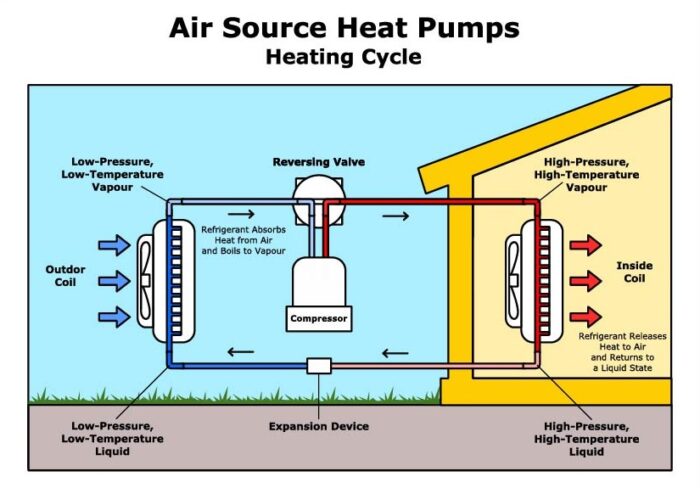
If you notice your heat pump frequently to auxiliary heat, there may be an obstruction in the airflow. This might be the result of clogged air filters or a buildup of dirt and debris blocking the grills or ducts and preventing adequate circulation in the system.
To address this, make sure you regularly (every 6-8 weeks) replace or clean your air filter and check for any dirt accumulation around your components from outside sources such as plants, foliage, or other environmental factors.
Doing regular maintenance on your equipment will help ensure optimal operation and prevent any potential issues that can arise from blocked airflow.
3. The heat pump isn’t sized properly for your home
If you’ve noticed your heat pump keeps going to auxiliary heat on a regular basis, this may indicate that it is not correctly sized for your home. It’s important to ensure that your heat pump has been sized correctly and take into account the size of your home, the number of windows, the type of insulation in your walls, and other factors.
An HVAC professional can provide an assessment and make recommendations to determine if a bigger or smaller model would be more effective and energy efficient. A system not properly matched to the needs of your home will cause extra strain on both your wallet and heating system over time.
4. There is a problem with the wiring or the circuit breaker
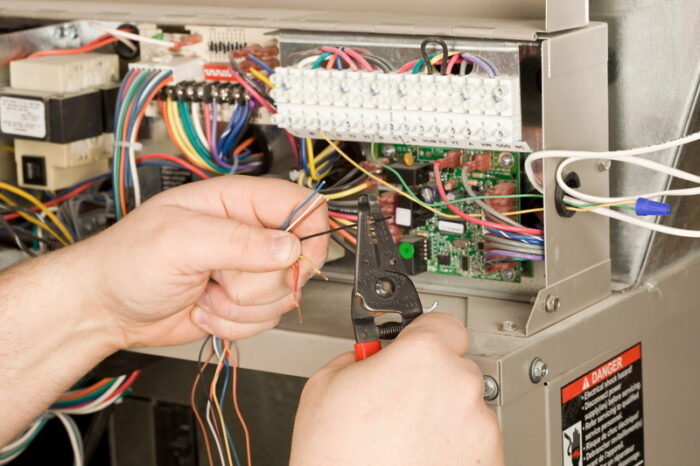
Your heat pump might be switching to auxiliary due to a problem with the wiring or the circuit breaker. It’s important to make sure that these aspects are working correctly in order to ensure that your home heating system works optimally and stays in good shape.
To resolve this issue, it is strongly recommended that you contact an HVAC technician who can identify and repair any potential problems with your wiring or your circuit breaker quickly and safely.
In some cases, faulty wiring and insufficient power may even be hazardous if left unattended. Therefore, don’t hesitate to seek professional help as soon as possible.
5. You may need to upgrade your heat pump
If your heat pump is frequently switching to auxiliary heat, it may be a sign that your current system needs an upgrade.
Heat pumps are designed to provide reliable and efficient heating to your home but after years of service, they can become less efficient in extreme weather or with general wear and tear.
If your energy bills are on the rise and you’re noticing more frequent switches from the main heat source to auxiliary heat – then a replacement might be worthwhile. Speak with a professional in order to evaluate whether an upgrade is necessary for the optimal comfort of your home.
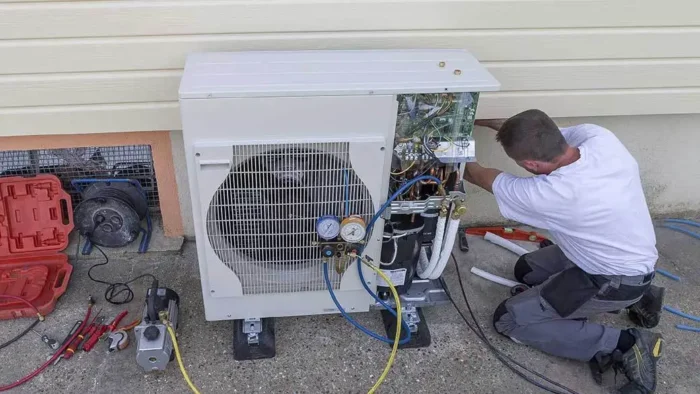
Conclusion ─ Why does my heat pump keep going to auxiliary heat?
If your heat pump is constantly running on auxiliary heat, it could be caused by a number of issues. To fix these problems, it’s best to call a professional HVAC technician as they will have the right tools and expertise to diagnose the issue and make any necessary repairs.
With the right maintenance, your heat pump should maintain safe operating temperatures without having to resort to auxiliary heat.

